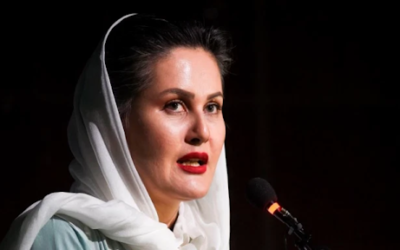On April 25th, 2021, the 93rd Academy Awards will finally be held after being pushed back by a couple months from its original date. With the COVID-19 pandemic forcing a majority of film releases to either be postponed or released through streaming, the line-up of films that have been vying for awards recognition has been shaken up quite extensively, and a change of date became necessary in order to accommodate a greater number of films. Thanks to this schedule alteration, which has allowed films released before February 28th, 2021 (either through the traditional theatrical format or, if unable to be released in theaters as originally planned, onto an accessible streaming platform) to qualify for this year’s award ceremony, fears of a limited list of nominated films have proven to be unfounded.
Most notable above all else is the Best Picture category, which is meant to showcase the films considered to be the best of the previous year. This year, there are eight nominated films: “The Father” (released by Sony Pictures Classics), “Judas and the Black Messiah” (Warner Brothers), “Mank” (Netflix), “Minari” (A24), “Nomadland” (Searchlight Pictures), “Promising Young Woman” (Focus Features), “Sound of Metal” (Amazon Studios), and “The Trial of the Chicago 7” (Netflix).
As many industry analysts had predicted, it was Netflix, continuing the trend of the streaming giant’s growing presence in the awards circuit, that ended up receiving the most nominations of any studio. Appearing in a total of ten categories, their film “Mank” was the most heavily nominated film, and the studio was also given multiple nominations for such films as “The Trial of the Chicago 7” (with six nominations), “Ma Rainey’s Black Bottom” (five nominations), and “Hillbilly Elegy” (two nominations). Other films distributed by Netflix that have managed to earn some recognition include “Over the Moon”, nominated for Best Animated Feature, and “Pieces of a Woman”, of which its lead actress Vanessa Kirby was nominated for Best Actress.
In the Best Actor category, Steven Yeun, for his role in “Minari”, has become the category’s first ever Asian American nominee, and Riz Ahmed, for his performance in “Sound of Metal”, is the first person of the Muslim faith to be nominated here. In addition, the performance of the late Chadwick Boseman in “Ma Rainey’s Black Bottom” is also among those contending for the Best Actor award; should Boseman win, he will be one of the category’s few black recipients, as well as one of the few posthumous Oscars ever awarded, not only for this category, but for the entirety of the Oscars’ history.
The Best Actress category, meanwhile, also has a line-up with a handful of noteworthy names. Viola Davis and Andra Day, for their performances in “Ma Rainey’s Black Bottom” and “The United States vs Billie Holiday” respectively, both have a chance of becoming only the second black winner of this category, one that has not seen a nonwhite actress win since Halle Berry’s win for the 2001 film “Monster Ball”. To do so, they will have to overcome stiff competition from Vanessa Kirby, Frances McDormand in “Nomadland”, and Carey Mulligan in “Promising Young Woman”, though if Day’s Golden Globe win in this category is any indication, her chances of winning might be greater than expected.
Some of the acting nominations, however, have been met with confusion from analysts and the general public. According to many, the nominations of Daniel Kaluuya and Lakeith Stanfield in the Best Supporting Actor category for their performances in “Judas and the Black Messiah” are somewhat questionable, as those who have seen the film would argue that either actor’s nomination would be more appropriate in the Best Leading Actor category (even if Kaluuya did end up winning the Golden Globe in this category).
In the Best Supporting Actress category, among the more noteworthy nominees is Youn Yuh-jung for her performance in “Minari”. This nomination comes in the wake of criticism that last year’s Best Picture nominee “Parasite”, a film made in South Korea and featuring a predominantly Korean cast, did not receive any nominations in the acting categories despite the strengths of its actors.
The award for Best Director, meanwhile, has also seen its fair share of notable nominees. For the first time in Oscar history, two female directors have been included in a single year: Emerald Fennell for “Promising Young Woman” and Chloe Zhao for “Nomadland”. In addition, this is also one of the few times two directors of Asian descent will be competing for the same award: the aforementioned Zhao and Lee Isaac Chung for “Minari”. At the moment, Zhao, having recently won the Golden Globe for Best Director, seems to be the frontrunner for the Oscar. If she wins, she will not only be the second female recipient of the Best Director Oscar (following Kathryn Bigelow for her 2009 film “The Hurt Locker), but also the first woman of color to receive the award.
Whether or not this will be the case has yet to be decided, and with over a month away until the ceremony, there’s still plenty of time for surprises and shake-ups. Either way, this year’s ceremony will be one like no other, simultaneously taking place at both the Dolby Theater and Union Station in Los Angeles as a means of reducing COVID spread. Nobody knows yet how well ceremony organizers will pull off this dual format, but no matter what happens, it will still be very exciting to see who will go home with the industry’s biggest awards, and whether or not history will be made in the process.




